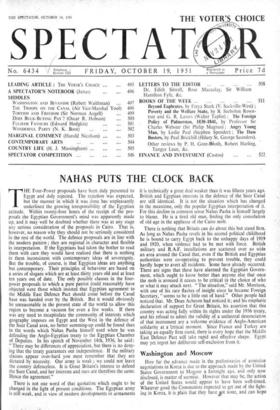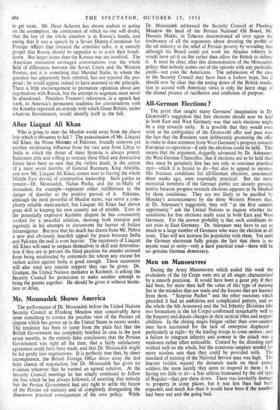Washington and Moscow
How far the advance made in the preliminaries of armistice negotiations in Korea is due to the approach made by the United States Government to Moscow a fortnight ago, and only now disclosed, is matter of surmise. However that may be, the action of the United States would appear to have been well-timed. Whatever good the Communists expected to get out of the fight- ing in Korea, it is plain that they have Jo none, and can hope to get none. Mr. Dean Acheson has shown realism in acting on the assumption, the correctness of which no one will doubt, that the key of the whole situation is in Russia's hands, and seeing that it was a speech by a Soviet Deputy-Commissar for Foreign Affairs that initiated the armistice talks, it is entirely proper that Russia should be appealed to to avert their break- down. But larger issues than the Korean war are involved. The American intimation envisaged conversations over the whole field of differences between the Soviet Union and the Western Powers, and it-is something that Marshal Stalin, to whom the question has apparently been referred, has- not rejected the pro- posal ; he would appear indeed to have assented to the principle. There is little encouragement to premature optimism about any negotiations with Russia, but the attempt to negotiate must never be abandoned. President Truman's references, in a speech last week, to America's permanent readiness for conversations with the Kremlin represent an attitude with which Great Britain, under whatever Government, would identify itself to the full.



































 Previous page
Previous page